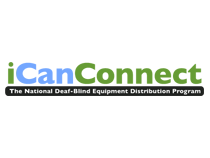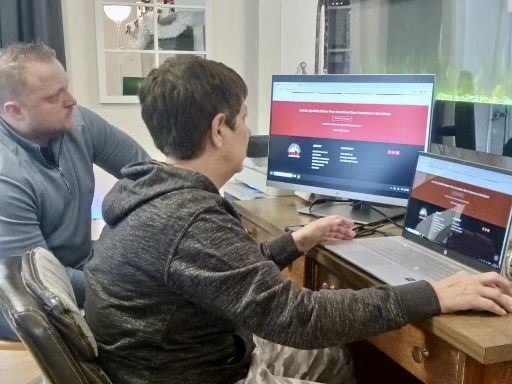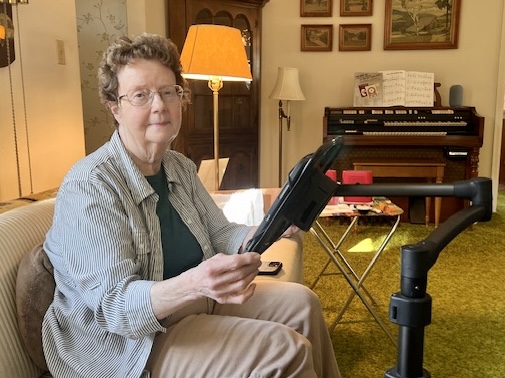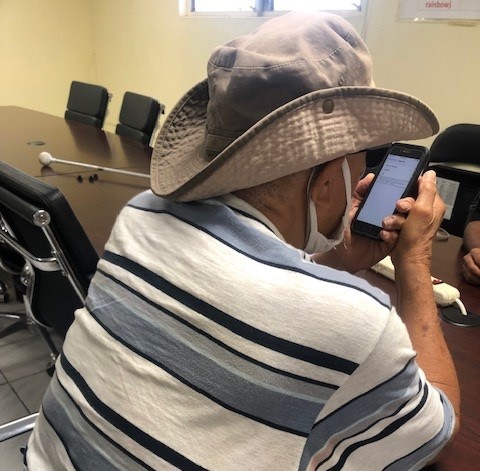Gayle Aamold, a 72-year-old grandmother from Hartford, South Dakota, is computer savvy. She’s a whiz on email, surfing the internet, posting on Facebook and calling with Skype. But her low vision and hearing – combined with a failing computer – eventually made communicating with her family more and more difficult.
Last year, Aamold received a new laptop computer with a 17-inch screen through The National Deaf-Blind Equipment Distribution Program, which is promoted as iCanConnect in South Dakota.
“It gives me the independence that I need so that I don’t have to call on someone,” Aamold says.
It’s a similar story for Seth Sims of Sioux Falls. The equipment he received through iCanConnect provides him the ability to live more independently even though he is blind and has limited hearing. He uses a BrailleNote device to read and communicate.
“Hopefully, it [BrailleNote] will keep me communicating and in contact with people when I do lose my hearing. I can at least talk to my wife.” Sims says.
Now in its second year, iCanConnect provides wide range of modern distance technology and one-on-one training to people with significant hearing and vision loss. Familiar equipment such as iPhones and laptops, as well as braille displays, phone amplifiers and specialized adaptive software are available at no cost to people who meet income guidelines.
The South Dakota Department of Human Services administers iCanConnect for the state. Program Director Janet Ball says she recognizes the program’s impact. “We are pleased to help address the telecommunications barriers and the isolation experienced daily by individuals with both hearing and vision loss.”
One reason iCanConnect is making an immediate difference in people’s lives is the training that’s available to all consumers. Ted Carrell’s is one of the best known deaf-blind trainers in South Dakota. Blind since childhood, Carrell has a computer science degree and has spent the last 25 years working with computers and assistive technology most recently as an employee of the assistive technology company, Dakotalink, which contracts with the Department of Human Services to fulfill the iCanConnect training program. Gayle Aamold and Seth Sims are two of his clients.
“The benefit of the program is to be able to communicate with your family and friends and to be on the same playing field,” says Carrell.
iCanConnect is available in all 50 states, the District of Columbia, Puerto Rico and the U.S. Virgin Islands. Learn more at www.iCanConnect.org. Click on “State Partners” to find each state’s contacts. The website is accessible to users with low vision and those who use screen readers, and it features video that is both audio described and captioned. Information about iCanConnect is also available by calling 1-800-825-4595 Voice or 1-888-320-2656 TTY.



